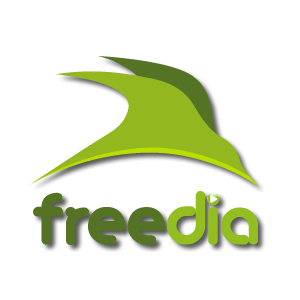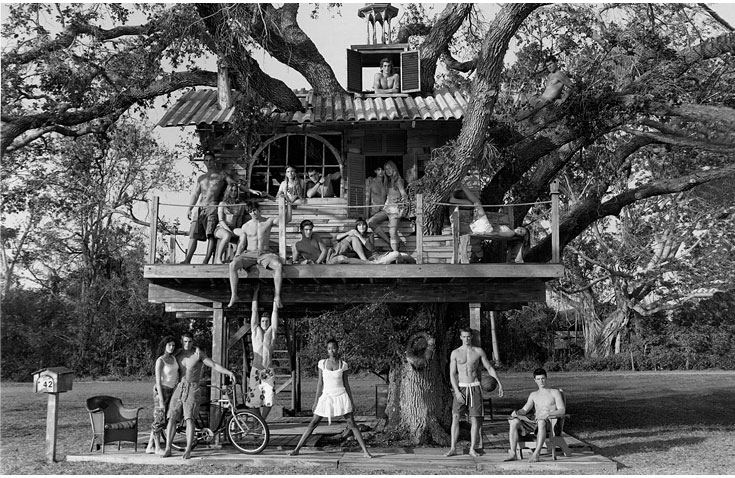The Master's Project
The master's project, which spans the autumn and spring terms (or the summer for part-time students), requires intensive research and writing of a substantial piece of journalism. The project is intended to demonstrate the students' ability to conduct and sustain in-depth research over several months, the ability to gather and organize large amounts of material, and the capacity to write that material in clear, accessible, and professional-quality prose. The project is also aimed at encouraging students to think beyond a daily deadline and to give them practice in the highest level of long-form reporting, writing, and producing. Although many projects end up being commercially viable, publication or broadcast is not the main goal. These projects offer a rare chance for students to experiment with topics new to them, and to practice a form of writing or production in which many journalists have little time to indulge until well along in their careers.
Master's projects are housed at Columbia University Libraries. The most recent five years' projects are kept at the Journalism Library, 203 Journalism, and are indexed on the Journalism Library Web site. Earlier years may be found on the lower level of Lehman Library, in the School of International Affairs (118th St. and Amsterdam).
Master's Project3 credits in Fall Semester (J6040x) 3 credits in Spring Semester (J6041y)
In its scope and duration, the Master's Project is the student's most sustained effort of the year. In terms of relative importance, credits and priority, however, it should be kept in proper perspective with the rest of the curriculum. The project is not a master's thesis in the traditional academic sense, but rather an in-depth exploration of a topic as a journalist would pursue it.
Master's Projects may be executed in print, digital media or broadcast (radio or television) forms. Students work on radio and print projects individually, and students doing video or digital media projects work with one or two partners.
The student receives guidance from an assigned faculty adviser who offers advice in selecting a topic, fixing its focus and working through an approach, conducting the research and doing the reporting and interviewing, and organizing, writing, rewriting (and recording and re-recording, where appropriate) and polishing the various versions. Some faculty advisers specialize in one or more subject areas, so you may wish to indicate the general topic you hope to pursue for your Master's Project.
We like to know early from students which type of project they wish to undertake-including the general topic. Students should indicate their preferences, even if they are tentative, on the Fall ballot, since an attempt will be made to match faculty advisers with students according to their preferences. Students will begin meeting with their adviser in September, and thereafter depending on the arrangement worked out between individual students and their adviser.
Requirements
Every student carrying out a project must meet the minimum requirements of 1) a proposal; 2) an early outline; and 3) three drafts or edits. Some variations are permitted at the discretion of individual advisers. The broadcast and digital media faculty impose slightly different requirements.
Students must meet with their advisers during the Fall to develop a topic. That topic must be fixed by Nov. 10. Serious work on the project will proceed during the Fall as well as over the holiday break. A "billboard" or brief description, preliminary outline and a list of likely sources must be submitted to advisers December 1. The results of your initial reporting and interviews are due by December 15 - your adviser will specify what he/she requires. The first draft is due on January 20, 2009. The second draft is due Feb. 23. The third-and final-draft will be turned in at the end of the Spring break, March 23."
You should stay in close and frequent contact with your adviser, who will explain the school's expectations and stipulations for completion of the project.
Choosing a Topic
Students should consider a topic that is significant, interesting, and feasible and will sustain their interest over months of research. The faculty recommends that students choose topics about which they are passionate or that really interest them. One does not have to be an expert on the subject; indeed, a good reporter becomes an expert.
For both logistic and educational reasons, the topic must focus on the New York area-that is, the student must collect most of the necessary information, and interview characters in person in the New York area. Some telephone interviews and computer-assisted reporting are likely needed, but they cannot predominate. Projects that require reporting in a foreign country will not be approved. Projects needing substantial reporting outside of the New York region also are discouraged.
Print projects should run between 5,000 and 7,000 words but may go longer if the material requires it and if the adviser so recommends. Those executed in broadcast or digital media vary according to the complexity of the material involved; most are the equivalent of a 30-minute documentary.
More...
Watch Video about Master's Projects
Master's Project Reference List
These are highly recommended as examples of the kind of journalism to which the Master's Project aspires:
- Helen Benedict: Portraits in Print (Columbia University Press, 1991)
- Joan Didion: Slouching Towards Bethlehem (Washington Square Press, 1991) and The White Album (Simon & Schuster, 1979)
- Oriana Fallaci: Interview with History (Houghton Mifflin, 1977)
- Frances Fitzgerald: Cities on a Hill (Simon & Schuster, 1986)
- Samuel Freedman: Upon This Rock: The Miracles of a Black Church (HarperCollins, 1994)
- Pete Hamill: Piecework (Little Brown, 1996)
- LynNell Hancock: Hands to Work: The Stories of Three Families Racing the Welfare Clock (William Morrow, 2002)
- Randolph T. Holhut: The George Seldes Reader (Barricade Books, 1994)
- J. Anthony Lukas: Common Ground (Knopf, 1985)
- William Lutz: The New Doublespeak (Harper Collins, 1996)
- John McPhee: The John McPhee Reader (Vintage, 1976, originally published by Farrar, Straus & Giroux)
- Jessica Mitford: Poison Penmanship (Knopf, 1979)
- Sylvia Nasar: A Beautiful Mind (Touchstone, 2001)
- Bruce Porter: Blow (St. Martin's Press, 1994)
- Michael Shapiro: Solomon's Sword: Two Families and the Children the State Took Away(Westview Press, 2002)
- In-depth broadcasts such as Frontline, 60 Minutes, All Things Considered, Nightline, and various radio and television documentaries
Elective 1
|
3 points
|
Multiple offerings in fall and spring; TV Reporting and Writing is required as the Elective 1 choice for broadcast students. Digital Media Newsroom is required for digital media concentrators.
|
Elective Courses
Self-directed study of a topic not otherwise covered in the Journalism curriculum, under the supervision of a regular faculty member in the Graduate Program in Journalism.
9722 Issues in International Reporting
This course is intended to provide young journalists with a framework for effective foreign reporting. Students taking this course will study and debate some of the underlying issues in international reporting today, preparing them to move eventually into foreign assignment roles in Canadian newsrooms or to undertake assignments or postings abroad.
A seminar-workshop course on problems and practical approaches in political reporting, its objective entry-level readiness for typical newsroom work. Includes lectures, guest speakers and mandatory writing/reading assignments. Grade weighted 70 per cent by course work and 15 per cent each by class participation and a major term reporting assignment.
9729 The Shaping of News and Information Through Technology
One of the founders of mass communications studies Harold Innis contended that not only did technology influence and shape the methods by which we communicate, it also influenced social, political and economic formations. This course will examine the perspective of emerging technologies from antiquity to the present day. The perspective will be historical, and communications, societies and empires will not be ignored.
9737 Writing for Magazines
The course will introduce students to the craft of writing for the magazine market. Evaluating the marketplace, preparing queries and story pitches, and developing the story will all be covered. Various magazine story formats will be examined including the profile, the narrative, the issue story and the investigative piece. Particular emphasis will be placed planning, developing and writing the long feature
9738 Reporting Business, Industry and Finance
Develops the basic journalistic skills required to provide accurate and meaningful news and analytical reporting about the activities of the Canadian business, financial and management communities.
9739 Principles and Practice of Newspaper Editing
This course covers the theory and practice of the many-layered editing process in a print newsroom. Students will learn about different types of editing -- from big-picture assessments to basic copy editing -- and will put some theories into practice through assignments. They will also learn basic layout and pagination guidelines. In addition to the practical work, students will take a critical look at some of the issues facing editors in today's pressure-filled newsrooms.
9740 Health and Medical Journalism - Analysis and Practice
This course combines media criticism, discussion of a broad range of health and medical issues, and journalism practice. It will explore the role of Big Pharma in agenda-setting, some of the key debates in health and medical research, and ethical and other professional challenges inherent in reporting these stories.
9741 Arts and Entertainment Journalism
This course aims to give students an overview of the types of stories written by an arts journalist working for a newspaper or website, such as reviews, columns, features, and profiles. The course will consider solutions to problems specific to arts journalism and will examine ethical questions peculiar to arts journalism.
9743 Special Topic: News Media and Deep Democracy
This course will examine media's role in the deepening fractures in Canadian society -- issues of inequality, values differences and unprecedented generational fragmentation that appear to be challenging the legitimacy of Canadian democracy. Students will engage in applied research and article preparation, use polling data from one of Canada's leading social researchers and take part in a social media project.
9744 Special Topic: Historical Perspectives on Journalism
Journalists the world over have always taken pride in one of the essential building blocks of journalistic culture, namely the view that journalists are first and foremost those individuals who are the first persons to record historical events. It goes well beyond that fairly simple but important observation. The entire human experience has been recorded one way or another in the press. The press has become the treasure trove of the events of the past, some small and marginal, others of great significance. It is this legacy that we will be studying.
Elective 2
|
3 points
|
Multiple offerings in fall and spring; students are encouraged to choose a course elsewhere in the University for their second elective
|










